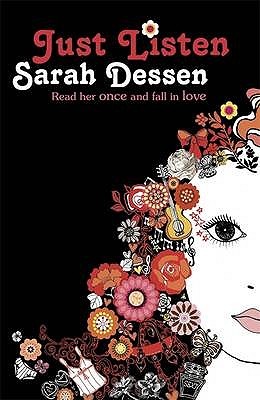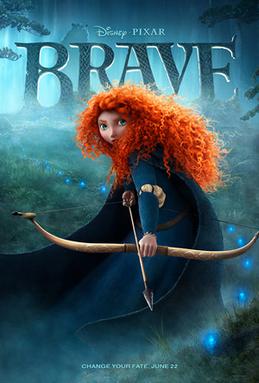Most of the time I don't wish I'd been an aristocrat in 18th Century England*, and the main reason for this is the Internet (and also hygiene). While there are serious issues in the world today, being a young adult in 2013 is seriously great in many ways. I have friends in countries around the world, friends who love the same cultural texts that I do. A big part of this is America's domination of the global media market (another issue altogether). As part of a globalised culture**, I can read
an account of what I felt watching
Star Trek: Into Darkness being expressed by a woman on the other side of the world. I can engage in discussions on race and hear perspectives and experiences I would otherwise never have known. I can talk about the politics of the Eurovision voting system, the problems with Steven Moffat's vision for
Doctor Who and about the atrocities my own government is committing against people seeking asylum. Basically, the culture I engage in is much broader and more diverse and interesting and complex then it would be if I got to be married off to an Earl in 1815, and didn't get to shower every day.
Culture is a really, really broad term. One of the best definitions I found is from the
OED (number 7):
"the distinctive ideas, customs, social behaviour, products, or way of life of a particular nation, society, people, or period."
Culture is not simply "high" literature or art galleries or french restaurants. Culture is what makes up society; it is how and what we think as a collective group of people. Culture is what is left behind to tell future generations about who we were. Culture is not monolithic, it is made up of millions of different pieces; some parts work to subvert and destabilise what other parts work to sustain and control. Thinking about culture: our culture, the culture of people around us, and how that effects us is one of the most important and valuable things you can do as a person (or group of people). This is why I've spent four years at university learning as much as I can about cultural analysis, despite constantly being told all I'll be qualified for is working at McDonald's.
I love engaging with culture: I love books. I love television. I love comics. I love movies. I like going to museums and art galleries and theatre and sports events. I love to read/watch the news. I like video games, though often I get motion sickness (I probably like the idea of video games more). I love fanfiction and blogs and really,
really love tumblr***.
I'm going to say this in a bigger font, because it is really, really important and the foundation of pretty much everything I write:
It is because I love these cultural texts that I am critical of them.
It is because I love engaging with culture that I try to be aware of the failings and problems of what I consume. I want to be constantly challenging my own conformity to cultural norms, and I think critical analysis is a beautiful part of being human.
One of the things about thinking this way is sometimes you get to the point where you no longer love something. For example, I enjoyed
Tangled when I saw it in the cinema, but working on it for my thesis has changed that. However, I think what is more likely is that you get more out of the text you are engaging with. For example, I love
Doctor Who, and the last few seasons have been quite frustrating for me. A good summary of why can be found
here. However, I actively engaged with what was bothering me about the show, talked about it with friends (my best friend and I would text each other during the show each week to work out whether the episode passed
the Bechdel test), read other fans' opinions online etc. I honestly think I would have just stopped watching if I hadn't done that, which would be sad, because I enjoy being a
Doctor Who fan, and still love the show.
It really frustrates me when fans of a cultural text or form (i.e
Doctor Who is a text or 'video games' are a form) refuse to critically engage with what they are consuming/engaging with. NOTHING IS PERFECT, and it pains me to say it, not even
Harry Potter. There are always problematic aspects to cultural representations because our culture has problematic aspects, and people who create these representations are individuals who have various privileges, biases and opinions.
When it comes to representations of women in media content, a key reason these representations continue occurring is because most media is made for male consumers and made by men. While all forms of media provide many instances of problematic representations of women, a lot of discussion goes into the representations found in comic books and video games. Both of these are vehemently defended by many fans, who refuse to look critically at any aspects of what they love, and often resort to agressive defensiveness. This defensiveness has more than once resulted in sexist and violent threats and behaviour towards women. One of the best (worst) examples of this is what happened to
Anita Sarkeesian.
One of the things that bothers me most about this, and the reason that I started writing this post, is not so much the men who decided to threaten Anita Sarkeesian with rape (though abhorrent and deeply troubling), but the people who say they're not like those people. The video game fans who claim to be different, and to care about women and men being treated equally but
still say that there is no problem.
There is a problem. It is a
fact and it bothers me that people can watch reasoned and logical arguments about the impact of these representations, such as
this and
this, and still say there is absolutely no problem.
I've watched a lot of Anita Sarkeesian's videos, from her
Feminist Frequency channel, and do not always agree with everything she says. But she quite clearly outlines problems we have in our culture about women, and how these are represented in our cultural texts. Simply dismissing such arguments as crazy and completely wrong is reductive and by doing so people are actively participating in these negative cultural ideas.
Thinking critically about popular culture does not negate enjoyment of it, rather it gives a depth of cultural understanding that I believe is really important. The responses I have seen to these videos, and other critical cultural analysis reinforces for me by belief in the importance of tertiary level English (and/or cultural studies type subjects). Learning critical thinking and being an active consumer of texts and media is so important for our society. How else will change happen?
I want to be clear: I am
not saying that you can not be an engaged, thoughtful and active participant in culture without a university humanities/social science education, or that everyone with such an education is going to engage critically with cultural text. I simply believe my education to have tremendously helped me to examine my own privilege and to engage with cultural texts I love (though the way my mum raised me helped
a lot).
I think regardless of your theoretical or social movement perspectives, it is important to be critical of all culture you engage with, and especially when it is something you love. To say things are not problematic, when someone else is saying they are: for example, a man saying female representations are not problematic, is so
disrespectful to those in minorities who are represented badly, and shows a lack of empathy for people of different experiences. You might say you're a nice person who cares about equality, but if you can't examine you're own position of privilege and the texts that support and reinforce that privileged I'd like to suggest perhaps you're not.
___
* I read a lot of Georgette Heyer
**Which is a problematic term given economic, technological, etc. disparities between the "rich" and "poor" countries, and even the rich and poor within countries.
***This is not a substantive list of all kinds of expressions of culture or cultural texts, simply the ones I like that first came to mind.













